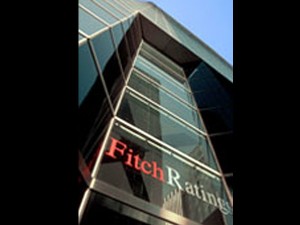Fitch maintains PH credit rating
Fitch Ratings, an international agency that evaluates the creditworthiness of countries and corporate entities, has maintained its main credit rating for the Philippines at one notch below investment grade, citing both favorable and unfavorable economic developments.
In a statement, Fitch said it was keeping the “foreign-currency issuer default rating (IDR)”—which is used as guide by foreign creditors and investors in evaluating a country’s creditworthiness—at BB+. This score is one notch below investment grade.
It also kept the “local currency issuer default rating”—which applies to local creditors and investors—at “BBB-”—which is an investment grade.
Fitch said the outlook for both ratings was “stable,” which meant the ratings were likely to remain the same for about a year.
The decision of Fitch to keep its previous ratings for the Philippines and assign a “stable” outlook on said ratings has reduced the country’s chances of getting an investment grade for its foreign-currency IDR within this year.
Article continues after this advertisementThe Philippines, which is losing to its neighbors in terms of foreign direct investments, has been pitching for an investment grade for its foreign-currency IDR.
Article continues after this advertisementEconomic managers believe that an investment grade will help the Philippines attract more job-generating foreign investments.
Growth rate next to China
“The ratings and outlook are supported by strong external finances, a track record of macroeconomic stability, favorable economic prospects, and falling public debt ratios,” Philip McNicholas, director in Fitch’s Asia-Pacific Sovereign Ratings group, said in a statement.
The Philippine economy grew by 6.4 percent in the first quarter of this year, the second-fastest rate in Asia for the period, next to China’s 8.1 percent.
Moreover, the Philippine government’s outstanding debt has fallen to just about 50 percent of the country’s gross domestic product (GDP) from over 80 percent in 2004.
The decline in the government’s debt burden indicates its improved ability to service its liabilities, Philippine economic managers said.
Nonetheless, Fitch said there were also factors that drag the country’s creditworthiness and thus offset the impact of the favorable indicators.
Needs improvement
“However, structural weaknesses, including low average income, a weak business environment, and a low fiscal revenue take weigh on the credit profile,” Fitch’s McNicholas added.
Although there are improvements in the government’s fiscal standing, Fitch believes these are still not enough to merit an investment grade. It said the government’s revenue collection should increase at a faster pace so its debt burden can decline further.
Household incomes in the Philippines are also lower than most Southeast Asian countries. This makes the country less attractive for business.
“Average incomes are low and the level of human development is poor,” McNicholas said.
Poverty incidence in the Philippines stood at 26.5 percent in 2009, one of the highest in Asia, according to latest poverty statistics.
It takes time
Fitch expressed optimism on the ability of the Aquino administration to improve the country’s creditworthiness. It said, however, that the reforms of the current administration would take time before significant benefits are derived.
“The Aquino administration’s reform agenda has focused on tackling perceived shortcomings in governance and poverty and has the potential to address longstanding structural weaknesses. However, it will likely take time to feed through to the sovereign credit profile,” McNicholas said.
